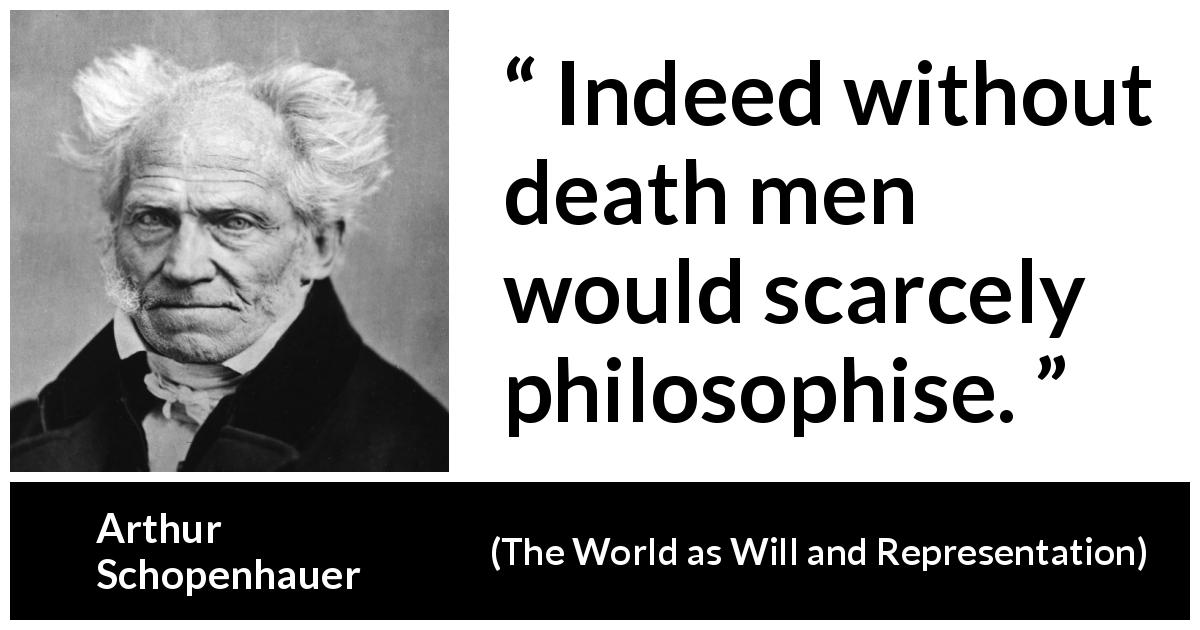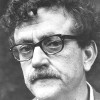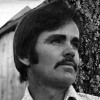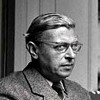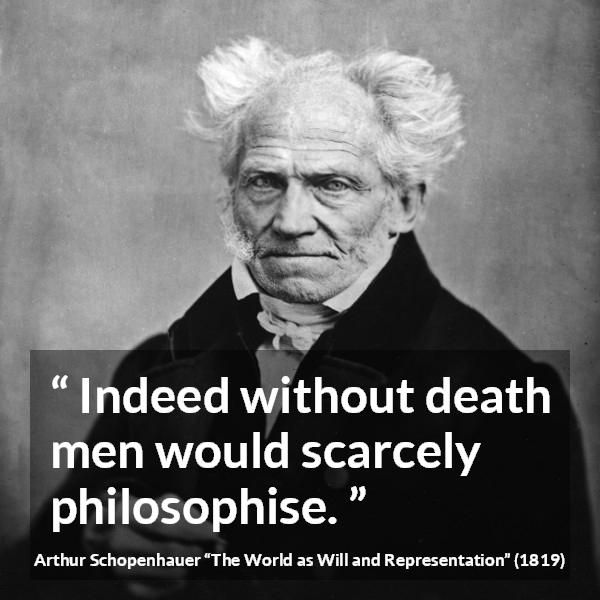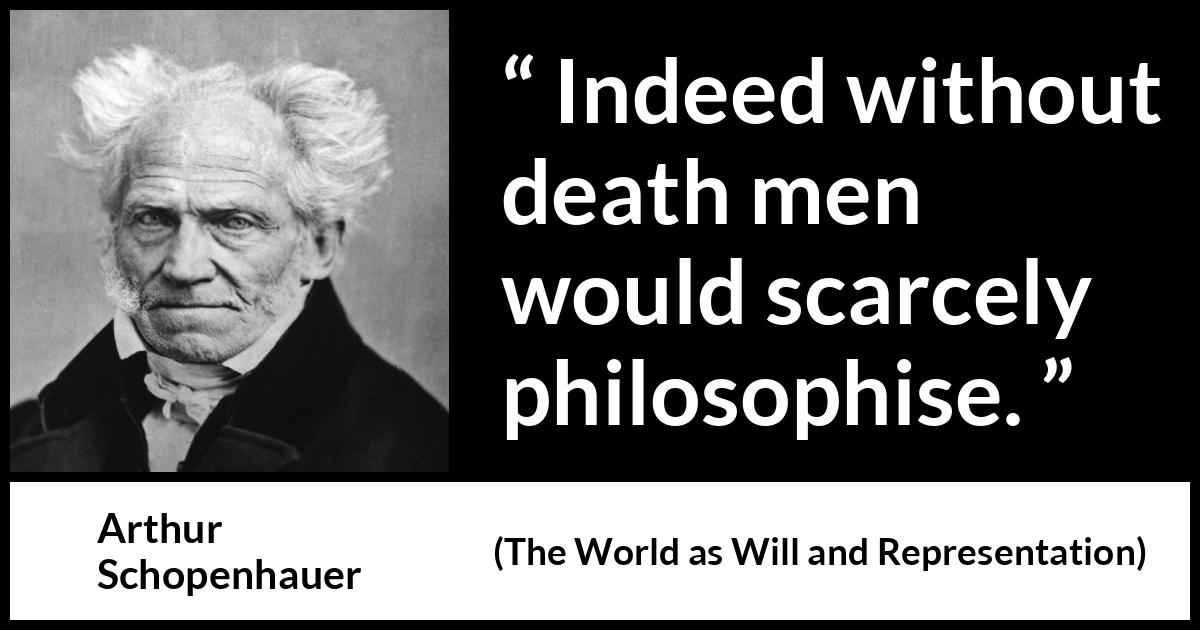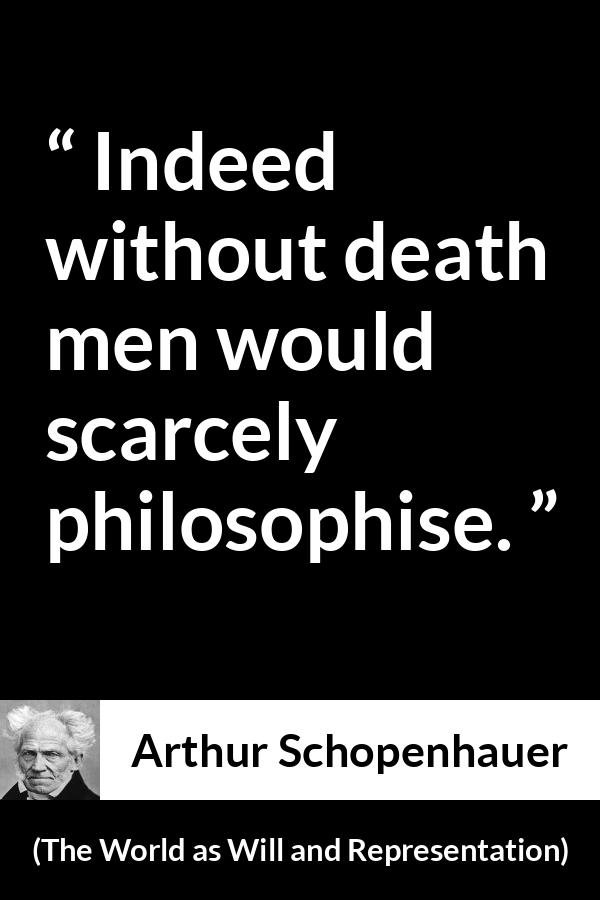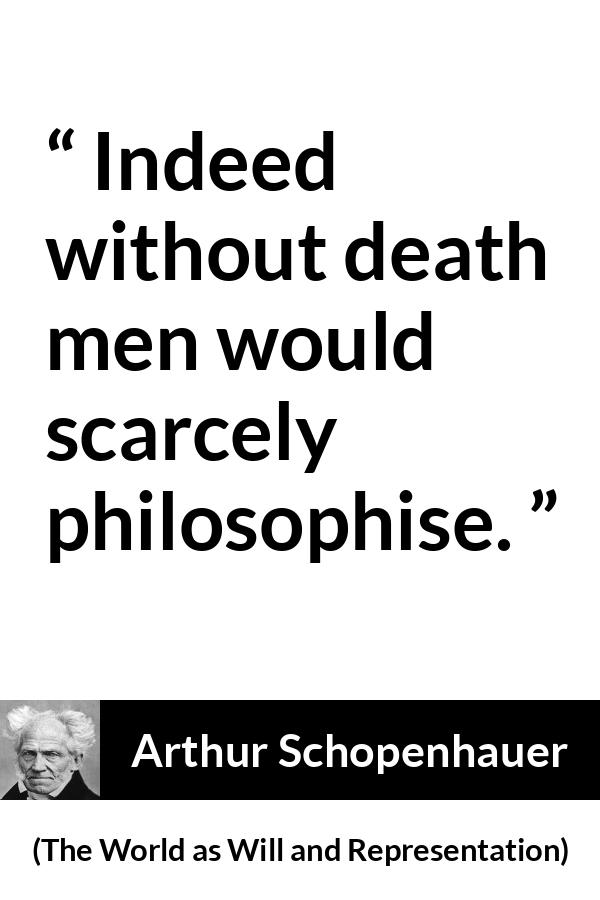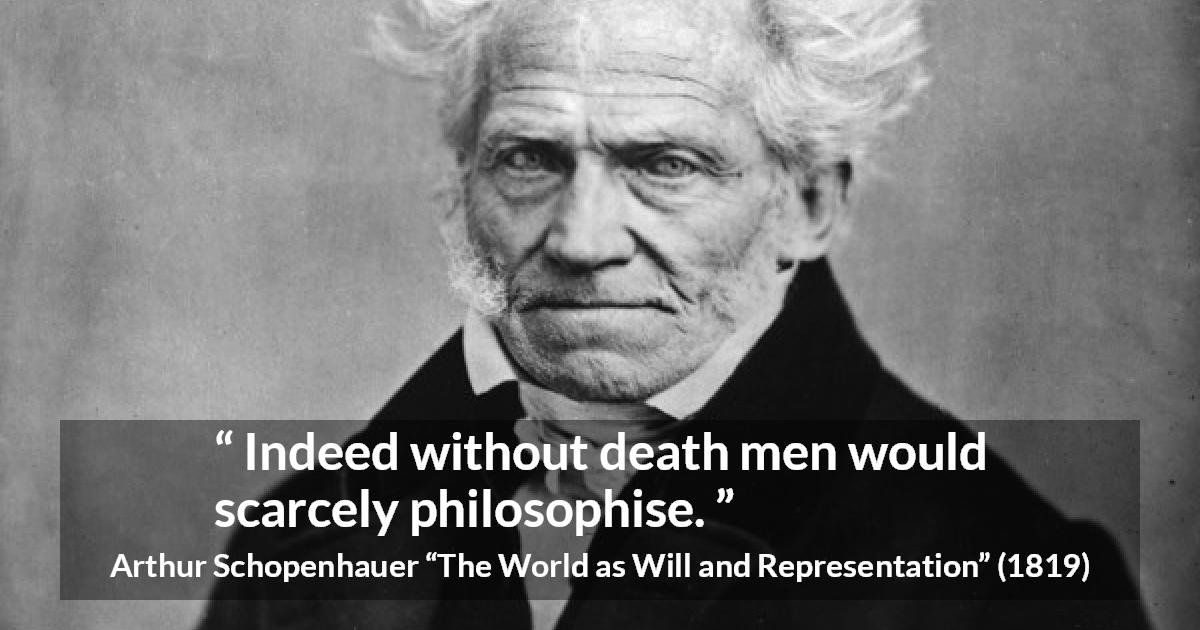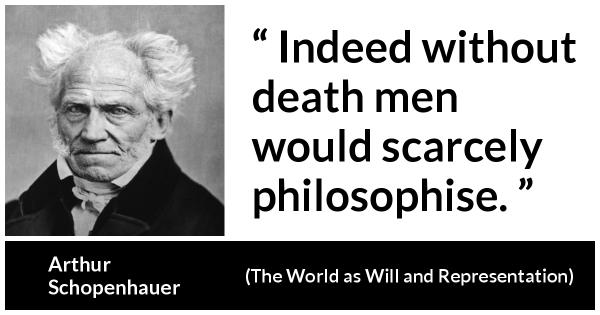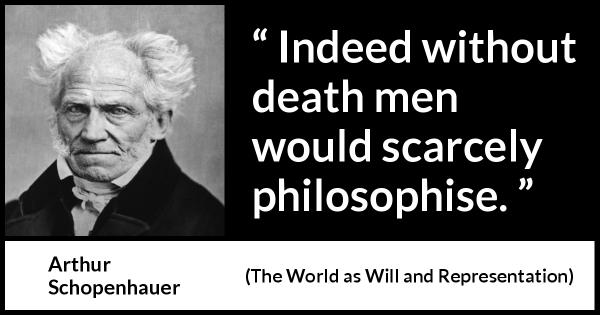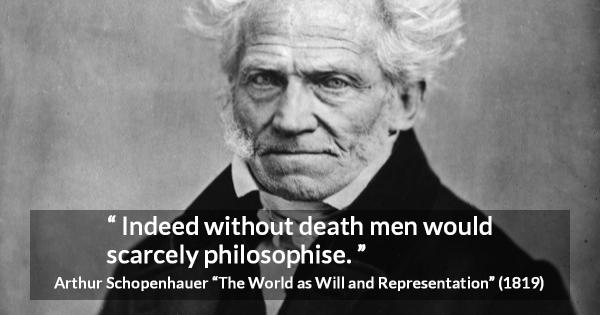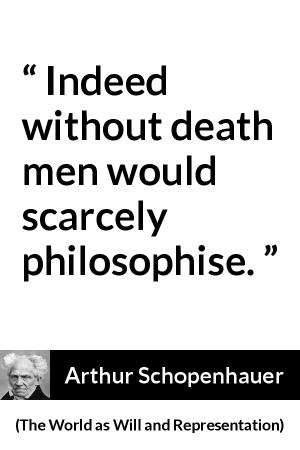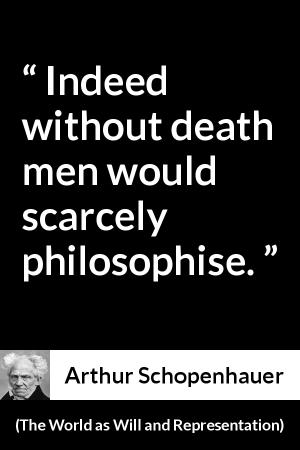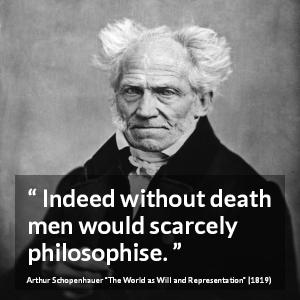“ Indeed without death men would scarcely philosophise. ”
Arthur Schopenhauer, The World as Will and Representation (1819). copy citation
| Author | Arthur Schopenhauer |
|---|---|
| Source | The World as Will and Representation |
| Topic | death philosophy inspiration |
| Date | 1819 |
| Language | English |
| Reference | |
| Note | Translated by R. B. Haldane and J. Kemp |
| Weblink | http://www.gutenberg.org/files/40868/40868-h/40868-h.html |
Context
“Chapter XLI.27 On Death And Its Relation To The Indestructibility Of Our True Nature. Death is the true inspiring genius, or the muse of philosophy, wherefore Socrates has defined the latter as θανατου μελετη. Indeed without death men would scarcely philosophise. Therefore it will be quite in order that a special consideration of this should have its place here at the beginning of the last, most serious, and most important of our books.
The brute lives without a proper knowledge of death; therefore the individual brute enjoys directly the absolute imperishableness of the species, for it is only conscious of itself as endless.” source
The brute lives without a proper knowledge of death; therefore the individual brute enjoys directly the absolute imperishableness of the species, for it is only conscious of itself as endless.” source
